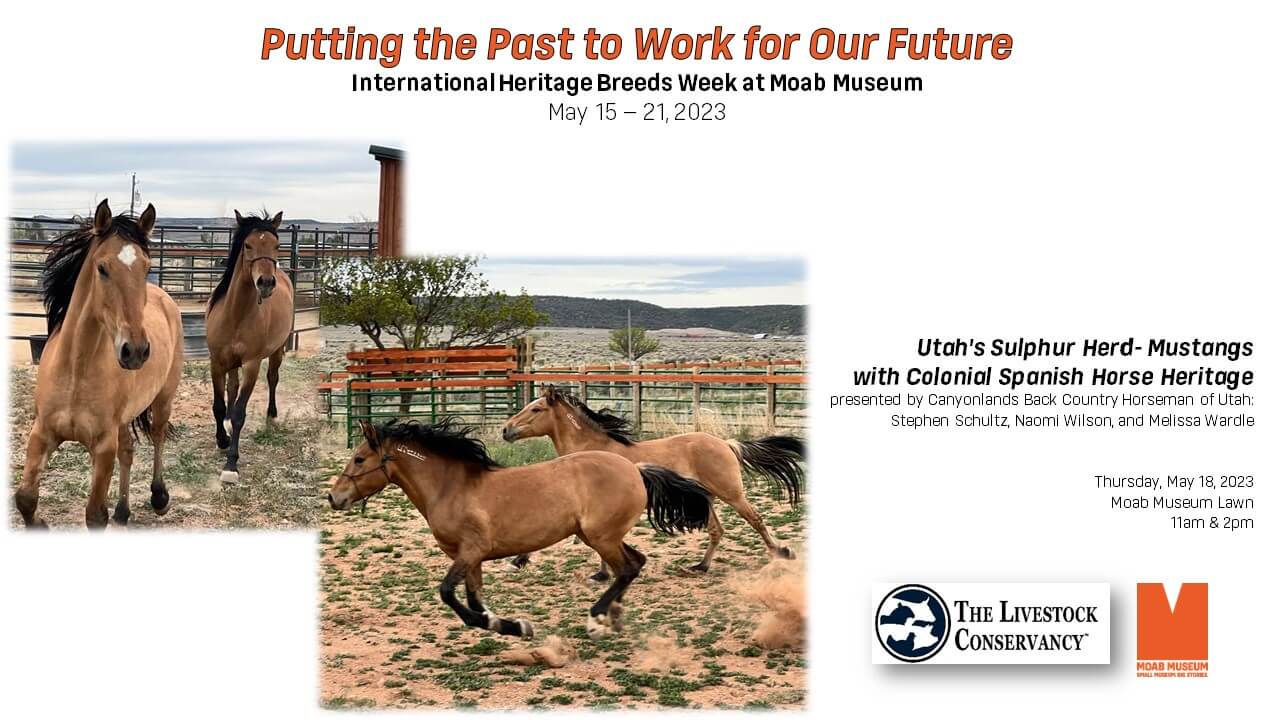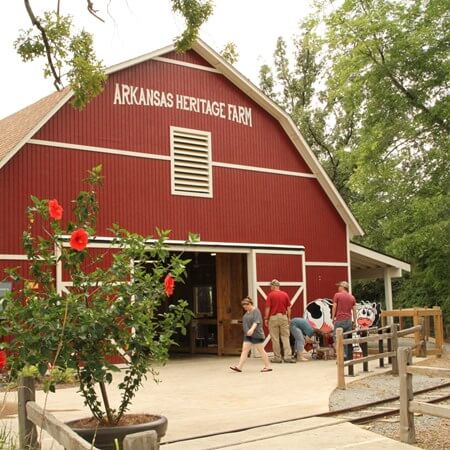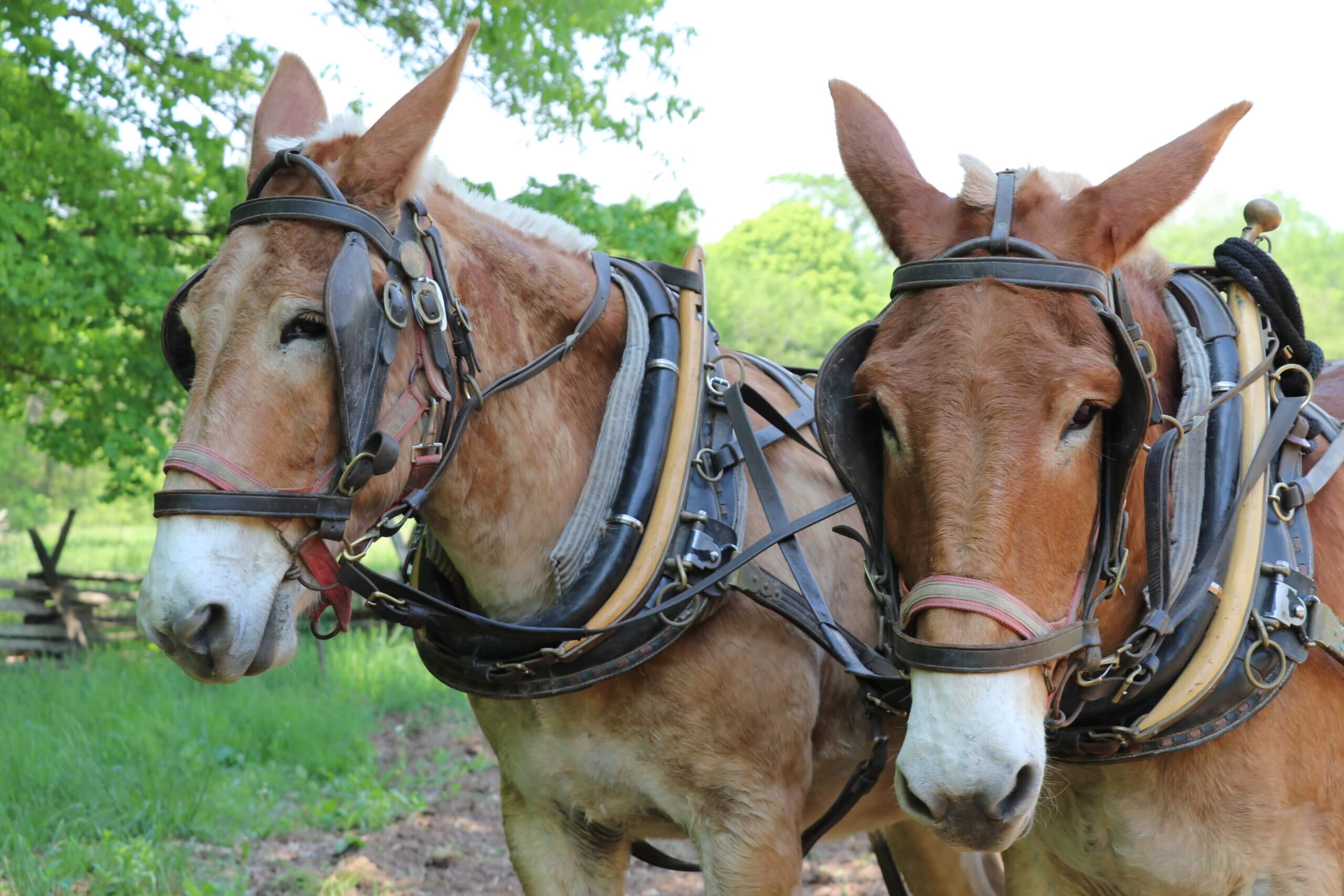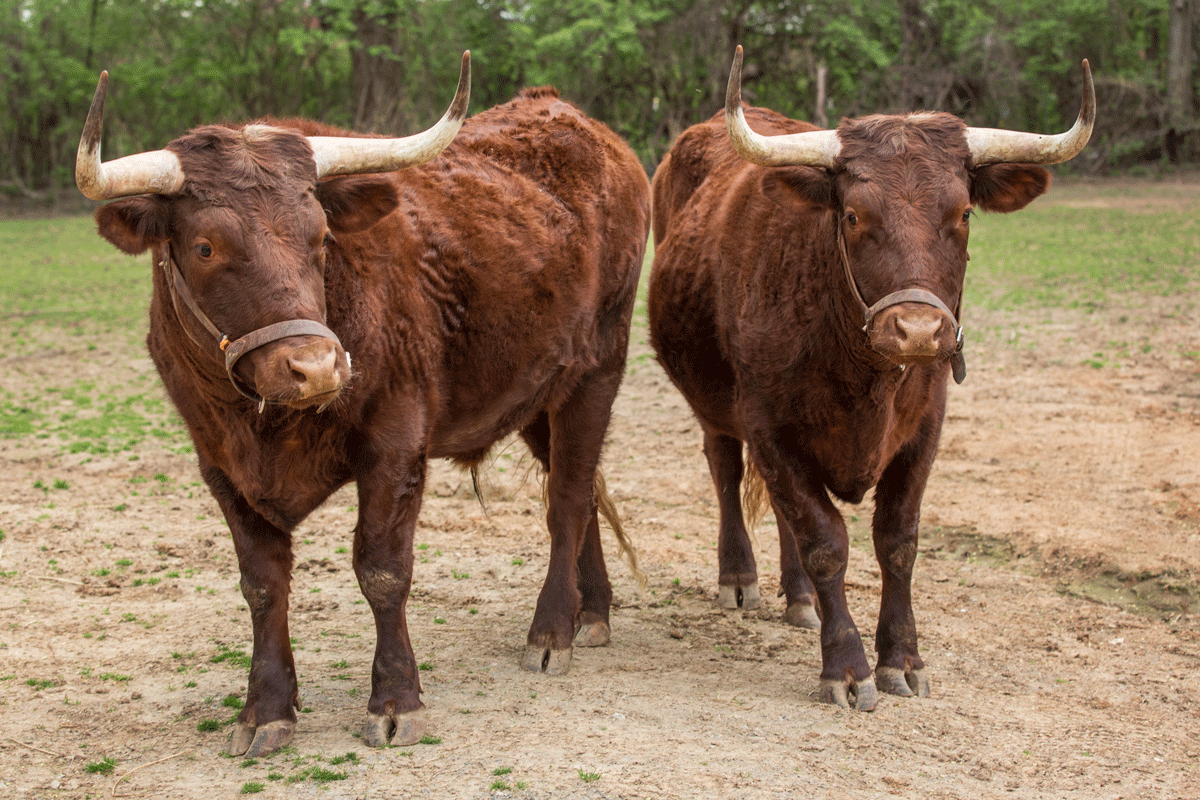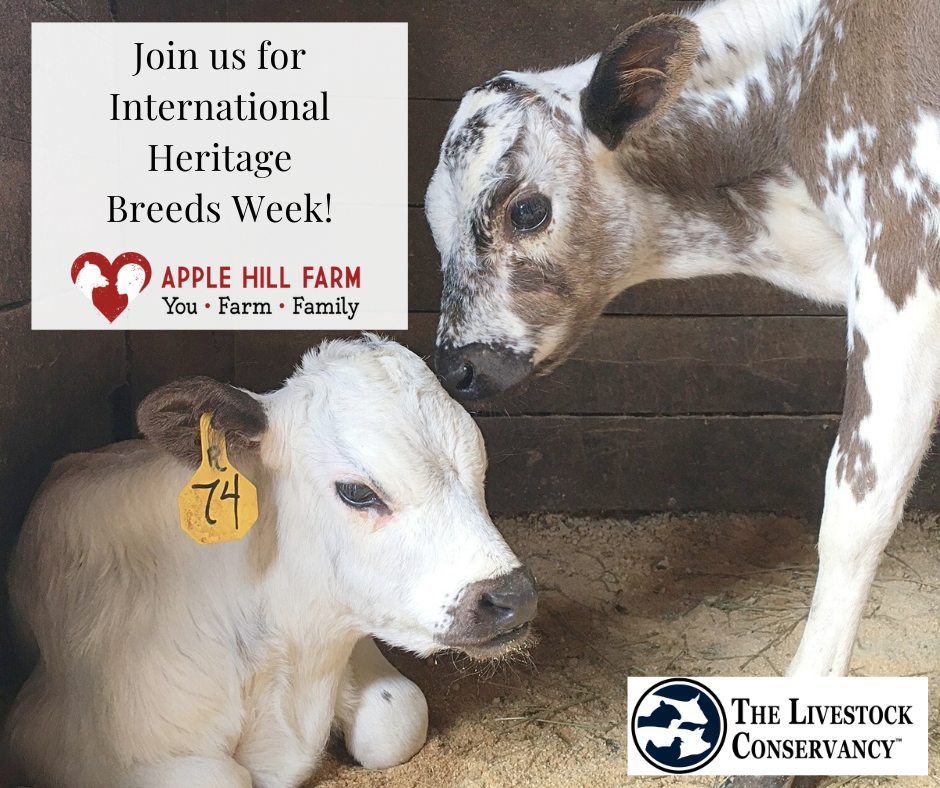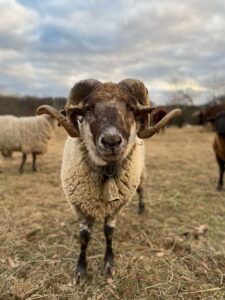
The Livestock Conservancy invites you to celebrate International Heritage Breeds Week Sunday, May 21 through Saturday, May 27. During the ninth annual celebration, the Conservancy is sharing the critically important message that rare breeds of livestock and poultry are an important part of the climate solutions needed for a changing planet.
Biodiversity matters. Today, ¾ of the world’s food supply draws on just 12 crops and five livestock species according to the United Nations. Yet, global demand for livestock products is expected to increase 70 percent by 2050.
“Many of our breeds contain traits carefully developed over hundreds of years,” describes Dr. Judy Brummer, Interim Executive Director for The Livestock Conservancy. “Today, heritage breeds serve as primary reservoirs of the genetic diversity found within most domesticated species of animals. Up to 50 percent of a breed’s biodiversity is found nowhere else within the species.”
Breeds of livestock and poultry depend on individual breeders for their survival, as they exist only in domesticated species. That’s why the Conservancy’s 4,000+ farmers, ranchers, and shepherds throughout America serve as a volunteer army in the fight to save irreplaceable genetics. Embedded within the DNA of 192 breeds on their Conservation Priority List are sustainable solutions to face tomorrow’s changing environment. And they’re exquisitely suited to meet today’s small-scale farming and homesteading goals.
Today, Santa Cruz Island sheep are being used for fire mitigation in the drought-stricken west. Brahma chickens thrive in cold climates as good winter egg layers. And long-lived Florida Cracker cattle produce excellent beef in hot and humid regions with poor pasture quality.
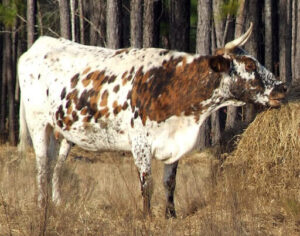
Florida Cracker Cow
“Failures in breed conservation are easy to recognize because numbers tell nearly the whole story,” continues Brummer. “They either fall drastically or the breed becomes extinct, such as the Narragansett Pacer horse in the mid-1800s. The Pacer’s popularity for crossbreeding led to insufficient pure-blooded breeding stock and eventual breed collapse. The Livestock Conservancy has worked for more than four decades to ensure that never happens again.”
By raising awareness about these endangered breeds through International Heritage Breeds Week, The Livestock Conservancy promotes their usefulness in providing fiber, meat, milk, work, sport, or conservation grazing. A major factor in successful breed prosperity is the steady demand for the breed’s products and services.
“Each breed best fits a specific environment,” concludes Brummer. “Yet, when a breed goes extinct, those genetics are lost and can never be recovered. Many heritage breeds retain traits like natural immunity, drought tolerance, easy birthing, flavor, mothering instincts, and foraging abilities that are important both today and tomorrow.”
To learn more about International Heritage Breeds Week, where to locate heritage breed products in your local area, and how you can get involved in the rare breed conservation of cattle, chickens, donkeys, ducks, geese, goats, horses, pigs, rabbits, sheep, and turkeys, please visit our Promote Conservation page.
Find Out About Heritage Breed Week Events Near You
***
For more information, please email erjohnson@livestockconservancy.org or call The Livestock Conservancy at (919) 542-5704. Staff specialists are available for interviews and additional high-resolution photos can be provided upon request from the world’s largest collection of heritage breed photos.

